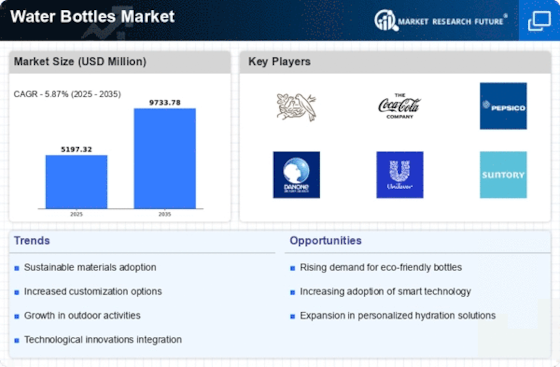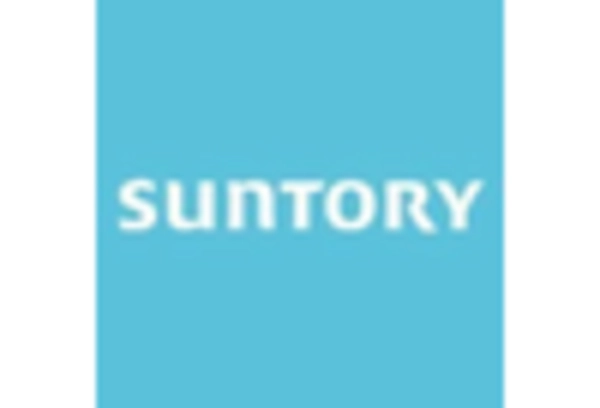Market Analysis
In-depth Analysis of Water Bottle Market Industry Landscape
The water bottle market is influenced by a variety of factors that shape consumer preferences, industry dynamics, and market trends. One key factor driving the demand for water bottles is the increasing awareness of health and hydration. As consumers become more health-conscious, they prioritize staying hydrated throughout the day, leading to a growing demand for portable and convenient water bottles that allow them to carry water with them wherever they go. Additionally, concerns about single-use plastic waste and environmental sustainability have prompted many consumers to switch to reusable water bottles made from materials such as stainless steel, glass, or BPA-free plastics, driving growth in the eco-friendly segment of the market.
Moreover, changing lifestyles and on-the-go consumption habits contribute to the demand for water bottles. With busy schedules and active lifestyles becoming the norm, consumers seek hydration solutions that are lightweight, durable, and easy to use. Water bottles that are designed for specific activities, such as sports bottles with built-in straws or flip-top lids for easy access during workouts, cater to the needs of consumers engaged in physical activities and outdoor adventures. Similarly, insulated water bottles that keep beverages cold or hot for extended periods appeal to commuters, travelers, and office workers looking for convenient hydration options throughout the day.
Furthermore, the influence of fashion and design trends plays a significant role in shaping consumer preferences in the water bottle market. As consumers increasingly view water bottles as fashion accessories or lifestyle statements, they gravitate towards products that reflect their personal style and aesthetic preferences. Manufacturers respond to this demand by offering a wide range of designs, colors, patterns, and customization options to appeal to diverse consumer tastes and preferences. Collaborations with artists, designers, and influencers further drive innovation and creativity in product design, contributing to the ongoing evolution of the water bottle market.
Additionally, advancements in technology and materials drive innovation and product development in the water bottle market. Manufacturers invest in research and development to introduce new materials, features, and functionalities that enhance the performance, durability, and sustainability of water bottles. For example, the development of lightweight yet durable materials such as Tritan™ copolyester or vacuum-insulated stainless steel enables the production of water bottles that are both rugged and portable. Similarly, the integration of smart technologies, such as hydration tracking sensors or UV-C sterilization, adds value to water bottles by providing users with real-time feedback on their hydration habits and ensuring water safety and purity.
Furthermore, regulatory policies and initiatives related to environmental sustainability and single-use plastics influence the water bottle market. Governments and regulatory bodies around the world are implementing measures to reduce plastic waste and promote recycling, including bans on single-use plastics, bottle deposit schemes, and extended producer responsibility (EPR) regulations. These initiatives create opportunities and challenges for water bottle manufacturers, spurring innovation in eco-friendly materials, packaging, and recycling infrastructure while also driving compliance and sustainability efforts across the industry.
Moreover, macroeconomic factors such as disposable income, population growth, urbanization, and lifestyle trends impact the demand for water bottles. Rising disposable incomes and urbanization rates drive consumer spending on convenience and lifestyle products, including premium water bottles and hydration accessories. Population growth, particularly in emerging markets with expanding middle-class populations, creates new opportunities for market expansion and penetration. Similarly, lifestyle trends such as wellness, fitness, and sustainability influence consumer behavior and purchasing decisions, shaping the demand for water bottles and driving market growth in specific segments and product categories.


















Leave a Comment